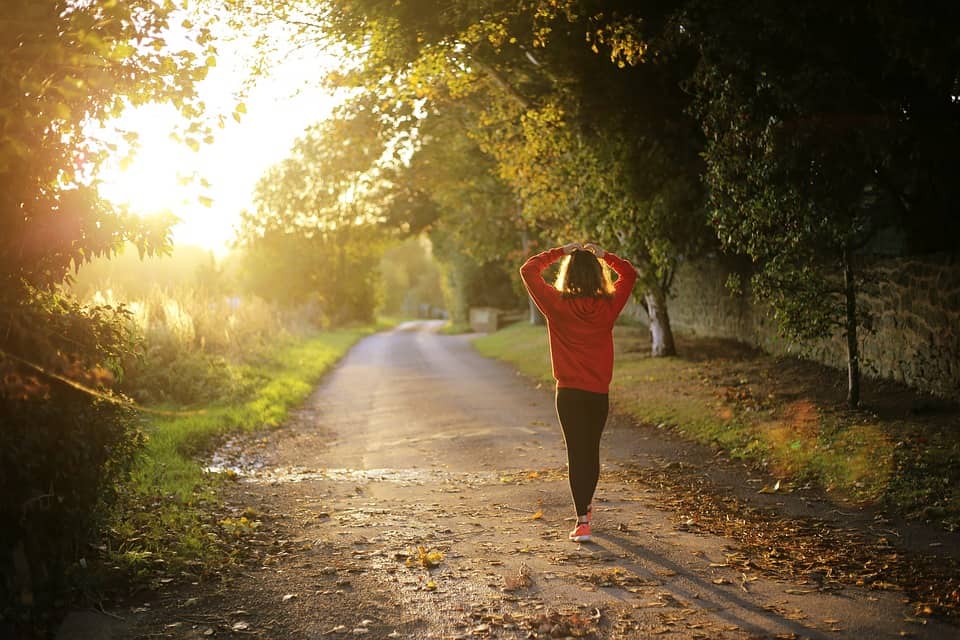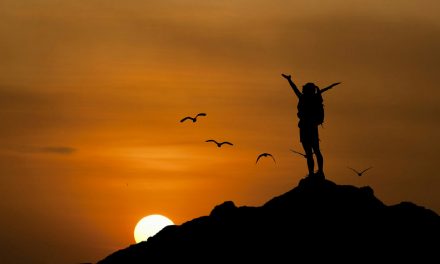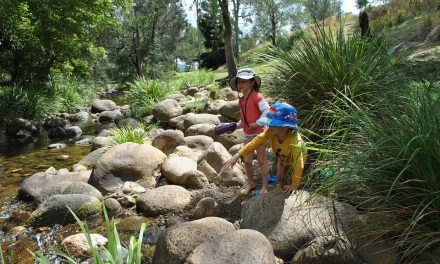Heading out on a morning walk or hike is a great way to start your day. However, should you go outside and exercise on an empty stomach?
In general, it’s best to avoid walking on a completely empty stomach. Skipping your pre-exercise meal can make you feel lethargic and low-energy. This is especially true if you’re doing long-duration, high-intensity workouts, like running, but is important to keep in mind, even for a casual walk.
Up next, we’ll discuss everything you need to know about pre-morning walk nutrition and whether you should sit down and have breakfast before heading outside.
Should You Eat Before A Morning Walk?
Surprisingly, many people – especially avid walkers – have some pretty strong opinions on whether you should eat before a morning walk.
Some people argue that you shouldn’t eat before your morning walk because exercising while hungry will encourage your body to burn body fat. Alternatively, others argue that you should eat before doing any sort of activity because your body needs the energy to keep you going.
So, which is it?
Well, it turns out that the answer to this question isn’t as black and white as people think it might be. In fact, recent research suggests that whether you choose to exercise on an empty stomach or not really depends on your fitness goals and your general health.
Advantages Of Eating Before A Morning Walk
The general advice for most people is that you should eat before going on a morning walk.
Indeed, the Hospital for Special Surgery notes that people shouldn’t work out on either an empty stomach nor a full stomach. Instead, a light meal or a small snack can provide essential energy for your body as you walk. Additionally, as the International Sports Sciences Association notes, eating before a walk – especially a long walk – can reduce the likelihood of low blood sugar-induced fainting or “bonking” as it’s often called in the running community.
A 2018 study from the University of Limerick also found that eating before exercise improves overall performance. This performance boost was particularly true during longer bouts of exercise, such as a long walk or morning hike.
Douglas Paddon-Jones, a professor at the University of Texas Medical Branch also states that it’s particularly important for adults over the age of 55 to eat before walking in the morning. This is because our bodies naturally start to break down muscle when they’ve run out of quick energy reserves, a particularly concerning process for older people.
What To Eat Before A Morning Walk
Of course, what you eat before your morning walk is important, too. As you can imagine, sitting down and having a greasy fried breakfast before you head outside isn’t going to make you feel great as you climb up that steep hill down the road.
Here are some top tips to keep in mind about pre-morning walk nutrition:
- Don’t Eat Too Much. Eating too much before a workout can make you feel sluggish. This is because your body starts to restrict blood flow to your digestive system when you’re exercising to supply your muscles with much-needed nutrients. As a result, you can feel nauseated, which can affect the enjoyability of your walk.
- Opt For Carbs. Small quantities of carbs are essential for endurance. This is true even on walks and during workouts that are shorter than 1 hour long. For very long walks in hot, humid conditions, a small pre-walk snack and a sports drink can make a big difference to performance.
- Make It Quick And Simple. Quick bites that you can have before heading out for a short morning walk include a banana or mixed nuts. For a longer walk or a hike, consider a light meal. Potential options include quick oats with fruits and nuts, or a fruit smoothie.
Walking On An Empty Stomach: Fact vs. Fiction
As we’ve mentioned, the question of whether or not you should walk on an empty stomach doesn’t have a clear-cut answer.
In fact, a number of studies, including a 2016 study from Brazil and a 2019 study from the United Kingdom, found a link between improved metabolism and exercise on an empty stomach.
The catch? These studies were done on young, healthy men who were performing intense exercise. This means we need more research to really understand the impacts of not eating before a walk in the general population.
Plus, while some people choose to walk on an empty stomach simply because they don’t feel hungry in the morning, others do so because they think that it will help burn body fat.
On the face of it, this seems to make sense. If your body is already in a state of hunger, further exercise might encourage it to burn fat as you walk. However, a 2014 US-based study actually found that there was no real difference between body fat composition in people who exercised on an empty stomach and those that didn’t.
Additionally, a 2013 study from Switzerland found that exercising on an empty stomach can cause some performance issues in the short-term. If you’re training for a marathon, training your body to perform when low on energy might be beneficial. But, for a regular morning walk, not eating might do more harm than good.
Oh, and as Columbia University notes, walking on an empty stomach might cause your blood sugar to tank before you get home. As a result, you may overeat during your post-walk meal. Not only is overeating problematic in its own right, but it wipes out any fat burning that might’ve happened during your walk.
Should I Walk On An Empty Stomach?
When presented with what seems like conflicting schools of thought about if you should eat before a morning walk, it can be tricky to know what advice to listen to.
Although some research does suggest that walking or exercising on an empty stomach can be beneficial, it may do more harm than good. Walking on an empty stomach can cause your blood sugar to fall very quickly. As a result, you may feel sluggish and your performance could suffer.
For the vast majority of people, including older adults, eating before a morning walk is important. The key is to stick with small meals or snacks before your walk, rather than a large multi-course breakfast. That way, you get the energy boost from food that you need, without feeling overstuffed on your walk.
- Tint Colors Explained For Polarized Sunglasses - November 19, 2022
- Top 4 Best Portable Camping Showers of 2022 - November 19, 2022
- How to Choose Water Shoes & What to Look For - November 18, 2022






